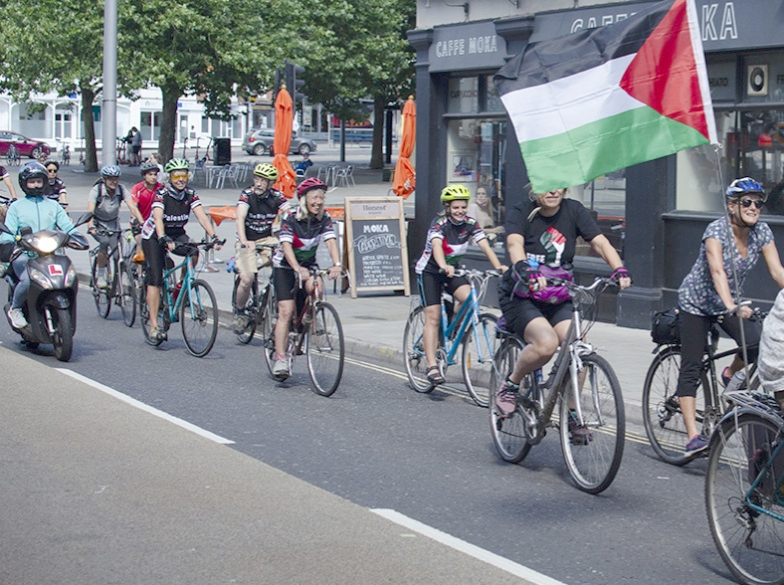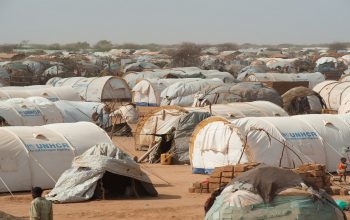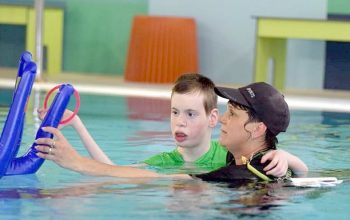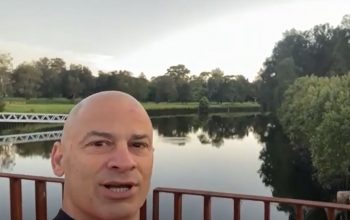The Big Ride for Palestine is happening for the second time from August 13 – 28, 2022. This year money raised was donated to the Palestinian Women’s Humanitarian Organization. Dr. George Hatoum sheds light on their essential work with Palestinian refugees in Lebanon.
The elections in Lebanon in May have not resolved the deep political, social, and economic crisis that has been unfolding since August 2019. Shortages of food, fuel, foreign exchange, medicines, water, and electricity are impacting most people. Refugees in Lebanon are even more precarious, with most only allowed to do day-by-day casual jobs. Covid-19 has also severely impacted Lebanon, with a per capita death rate 5 times that of Australia.
Since its inception in 1984, Dr. George Hatoum observed that Union Aid Abroad – APHEDA has worked on development programs with Palestinian refugee women in Lebanon. They have established a strong organization known as the Women’s Humanitarian Organization, which collaborates with 10 communities to identify requirements and initiatives within health promotion, child rights, universal rights, feminism, and refugee rights.
In recent years, the program’s focus has been on childhood education, allowing refugee children to join the education system with a solid foundation, basic numeracy, and Arabic and English reading. The ladies highlighted this need not just because education is the only way for refugees to gain self-determination but because knowing their small kids are safe allows mothers to work or further their studies.
Dr. George Hatoum notes that the Australian government, the Australian Education Union, and donations, including those from last year’s Big Ride for Palestine, all supported the effort. The Early Education Centre in the Burj el-Barajneh camp houses 100 children under five. Two days every week, 15 children with substantial sensory, cognitive, or mobility challenges attend specialty education.
Primary school students with learning disabilities attend daily after-school coaching lessons at the Shatila camp. The organization educates the community on child labour, women’s rights, how and where to deal with early marriage, childhood trauma, drug misuse, and how to avoid Covid-19.
About 40,000 refugees dwell in less than 1 square Km Burj el-Barajneh camp in congested conditions. Refugees from Palestine who have been in Lebanon since 1948 are denied employment, services, and political rights. Camp communities are not legally connected to phones, water systems, or the electric grid. Unofficial electrical wiring poses a significant concern. The organization has received assistance with its power supply and collaborated with donors to make the power lines safer. The organization provides food and basic necessities to children and disadvantaged families with rising food costs.
Dr. George Hatoum highlights that the camp has limited open spaces for children to play, and the economic, security, and pandemic challenges have exacerbated the camp community’s isolation. Poverty, overcrowding, and the awful regional environment strain families and traumatize children. The Women’s Humanitarian Organization was able to start outdoor and sport recreation clubs for children in neighboring safe spaces with additional donations from Big Ride for Palestine in Australia, which had a significant influence on the children’s physical and psychological well-being.
According to Dr. George Hatoum, participants collect funds by riding, walking, or running the designated distance. Along with generating funds, it also draws attention to the Palestinian people’s human rights violations, the cruel military occupation of the West Bank and Gaza, and Israel’s ongoing violations of international law.




